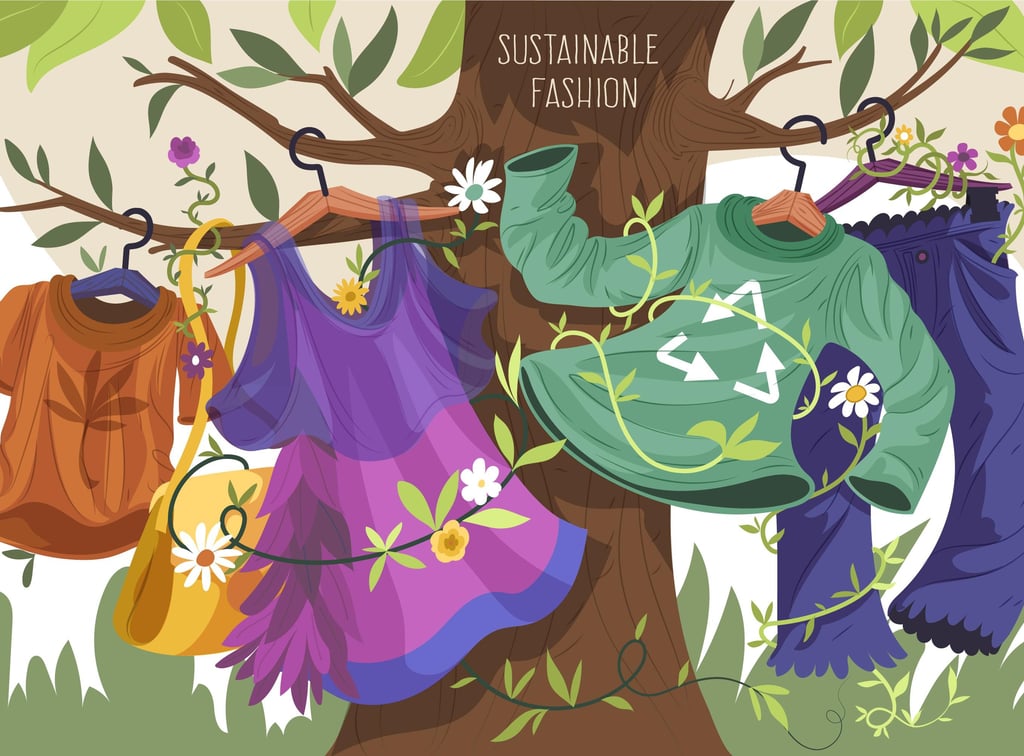Sustainable Style: How Fashion is Changing for an Eco-Friendly Environment
"Discover the transformation happening in the fashion industry as it embraces sustainability. Explore the eco-conscious choices made by designers, the shift towards ethical practices, and how consumers are shaping a greener future through their fashion choices. Join us in this journey towards a more eco-friendly and stylish world."
FASHION
Dr. Yashla Ateeq
10/24/20232 min read


In the ever-evolving world of fashion, a remarkable transformation is underway. The traditional concept of fashion is taking on a new, environmentally conscious identity as designers and consumers alike become increasingly aware of the massive impact of the industry on the planet. This paradigm shift towards sustainable style is not just a trend; it's a commitment to creating a better, eco-friendly environment for us all.
The Eco-Friendly Revolution
The fashion industry, known for its fast-paced trends and disposable culture, is recognizing the need for change. Growing awareness of the harmful environmental effects of conventional fashion methods is causing this transition. Excessive waste, pollution, and resource exploitation are challenges that the industry sector will not ignore further.
Materials Matter
One of the prime aspects of sustainable fashion is the choice of materials. Designers are selecting eco-friendly fabrics such as organic cotton, hemp, and recycled materials. These fabrics have a lower environmental footprint and often promote fair labor practices.
Slow Fashion Movement
The 'fast fashion' model, characterized by rapid production and low-quality, throwaway garments, is being challenged by the 'slow fashion' movement. Slow fashion encourages consumers to invest in high-quality, timeless pieces designed to last. This shift reduces waste and fosters a culture of mindful consumption.
Upcycling and Recycling
Innovative designers are embracing upcycling and recycling as creative ways to breathe new life into old garments. These practices reduce the demand for new resources and minimize textile waste.
Transparency and Ethical Practices
Brands are increasingly transparent about their supply chains and production processes. Consumers are showing interest in ethical practices and fair wages for the workers who make their clothing. It not only ensures a safe working environment but also supports local economies.
Consumer Empowerment
Ultimately, one of the consumers holds the power to drive change in the fashion industry. As more people become aware of the environmental and ethical issues associated with fashion, they are pulling together conscious choices about what they wear and where they shop.
A Greener Tomorrow
The shift towards sustainable fashion is a promising step towards a more eco-friendly environment. By choosing sustainable and ethical fashion trends, we can reduce waste, minimize pollution, and support a more responsible industry. The future of fashion is not just about looking good; it's about feeling good, knowing that the way we dress outfits is in harmony with the planet.
In conclusion, sustainable style is not just a fleeting trend but a movement here to stay. By choosing eco-friendly fashion, you're not solely making a change but contributing to a brighter, greener, and more sustainable future.
